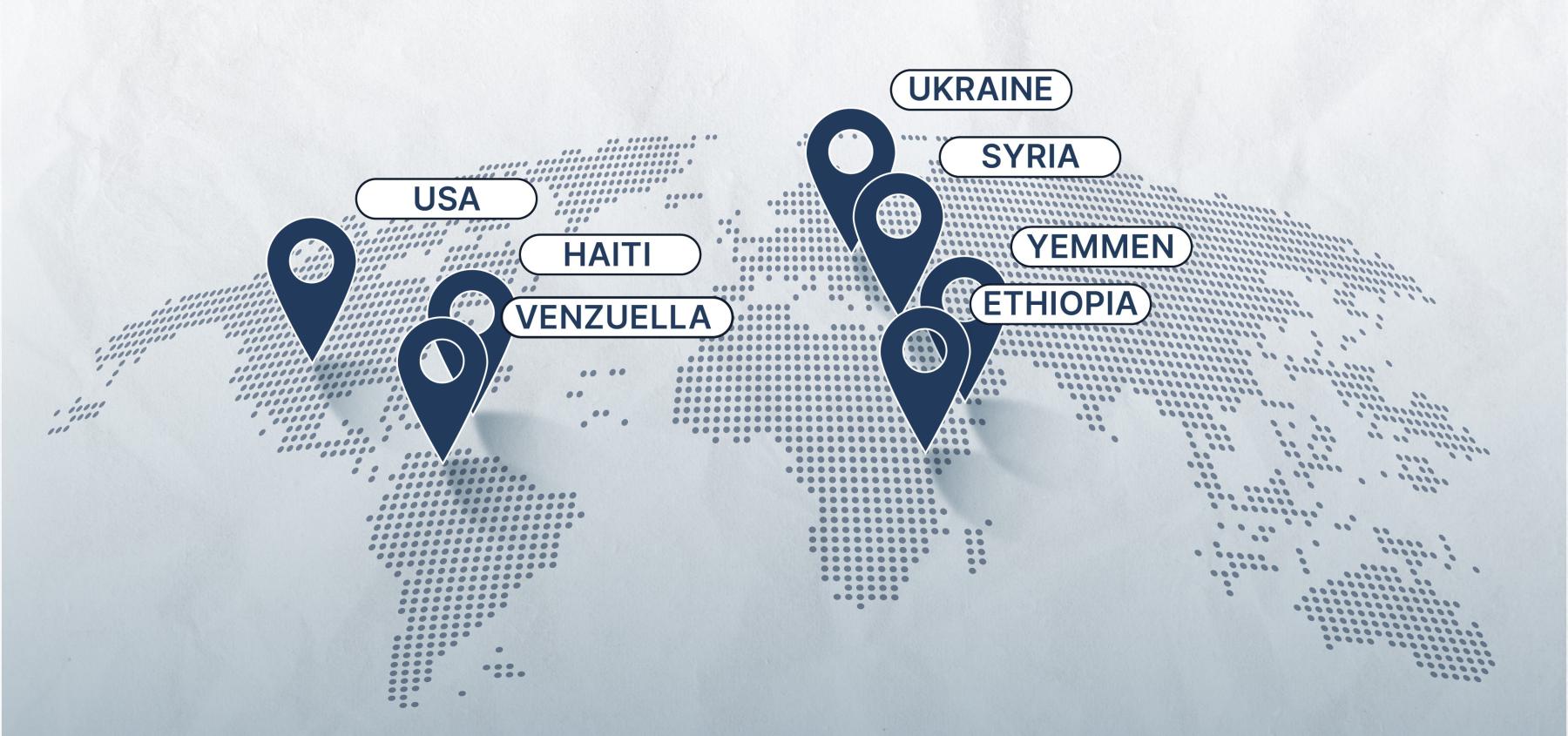.png)
We examined the extent to which extent recovery programs that received funding following the Beirut explosion succeeded in:

Results and Recommendations for more gender responsive and women inclusive aid were consolidated with the study participants during a Dialogue and Validation Meeting on June 07, 2022.
TODAY SEEDS offers legal consultancies to organizations interested in adopting internal policies to ensure more gender responsive and women inclusive aid.
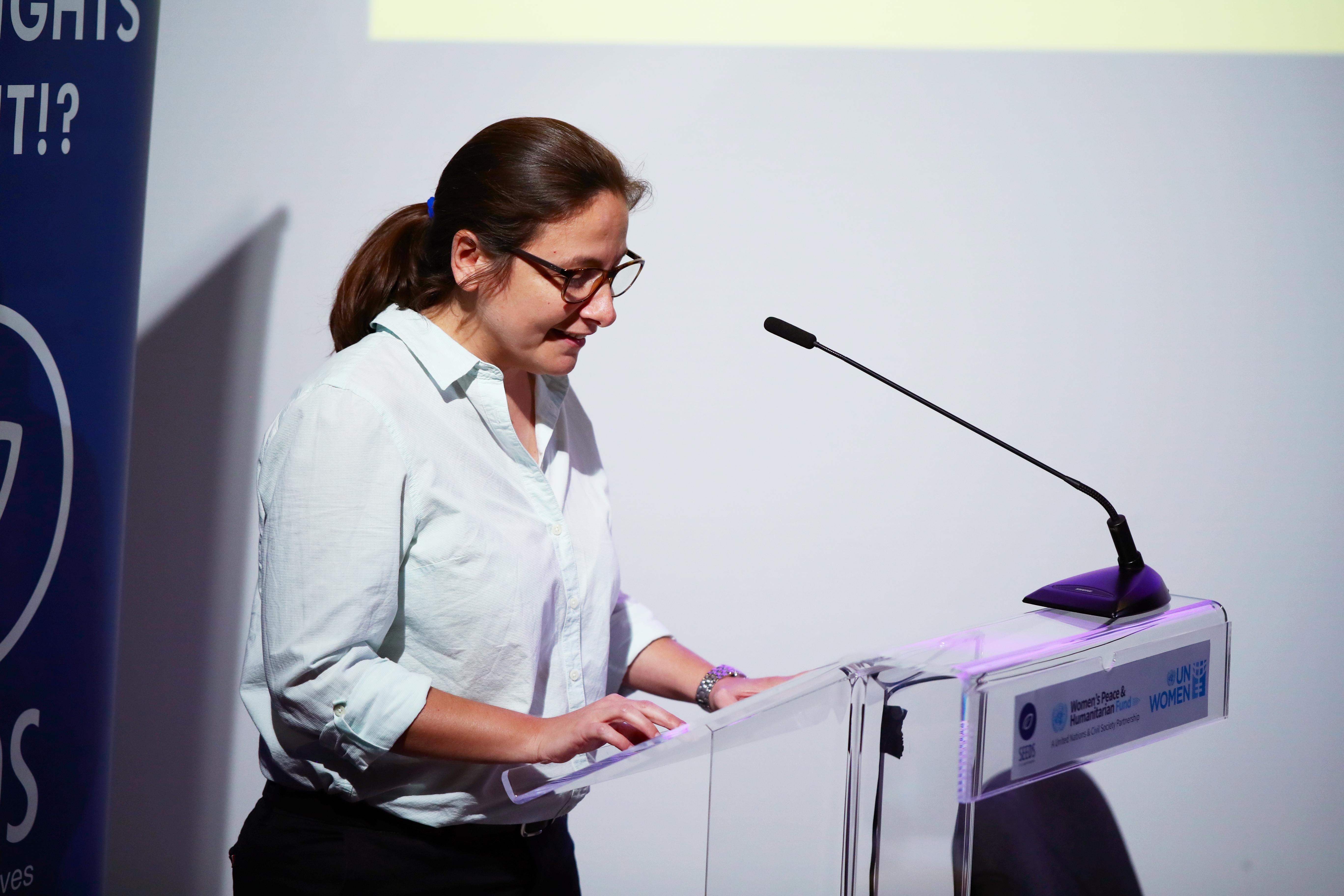
Structural Discrimination against women, along with the near total absence of state institutions, have had a disastrous impact on women’s lives in Lebanon who continue to suffer from marginalization, violence and oppression.
Biased and Discriminatory laws
Increased GBV during the pandemic
Shy political participation and no quota
Unequal economic opportunities, work conditions and pay
Harsher conditions for LBQT, refugee, migrant and other marginalized women
Lebanon has been receiving financial aid from the international community since the end of the Lebanese Civil War (1975 – 1990). Originally, the donations largely aimed to support the reconstruction and financial stability of the country. However, aid kept flowing due to catastrophic events such as the various ongoing, or sporadic conflicts within Lebanon.
The above overview of the financial aid to Lebanon covers the period from 1992 until 2020 and is based on the data available on Lebanon’s Country Data Section on the UN’s Financial Tracking Service (FTS) website.
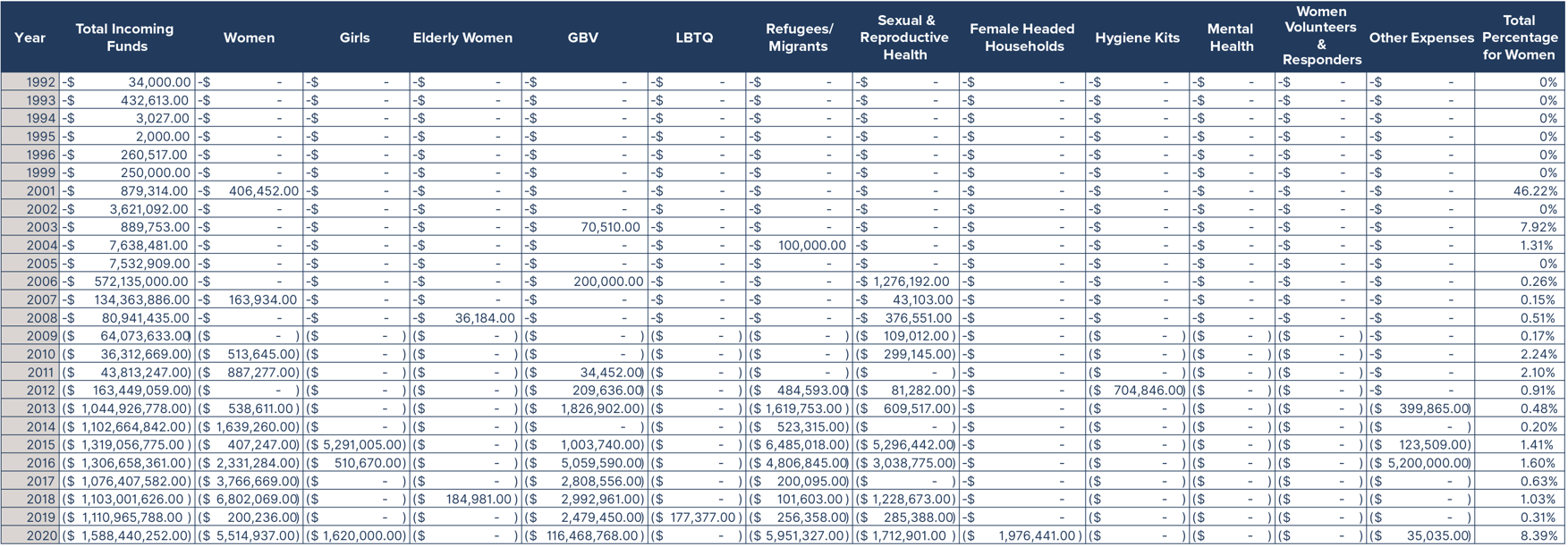
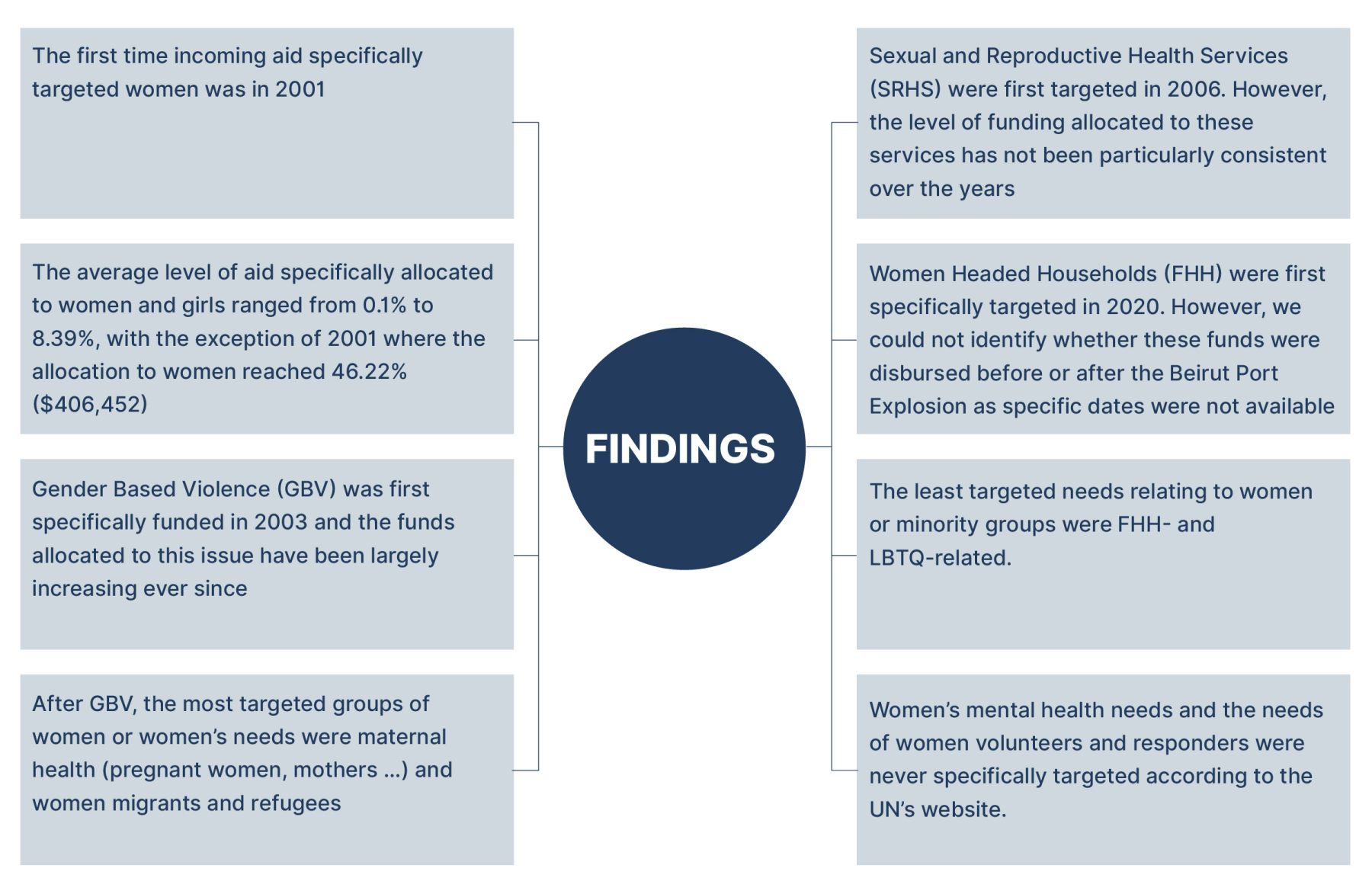
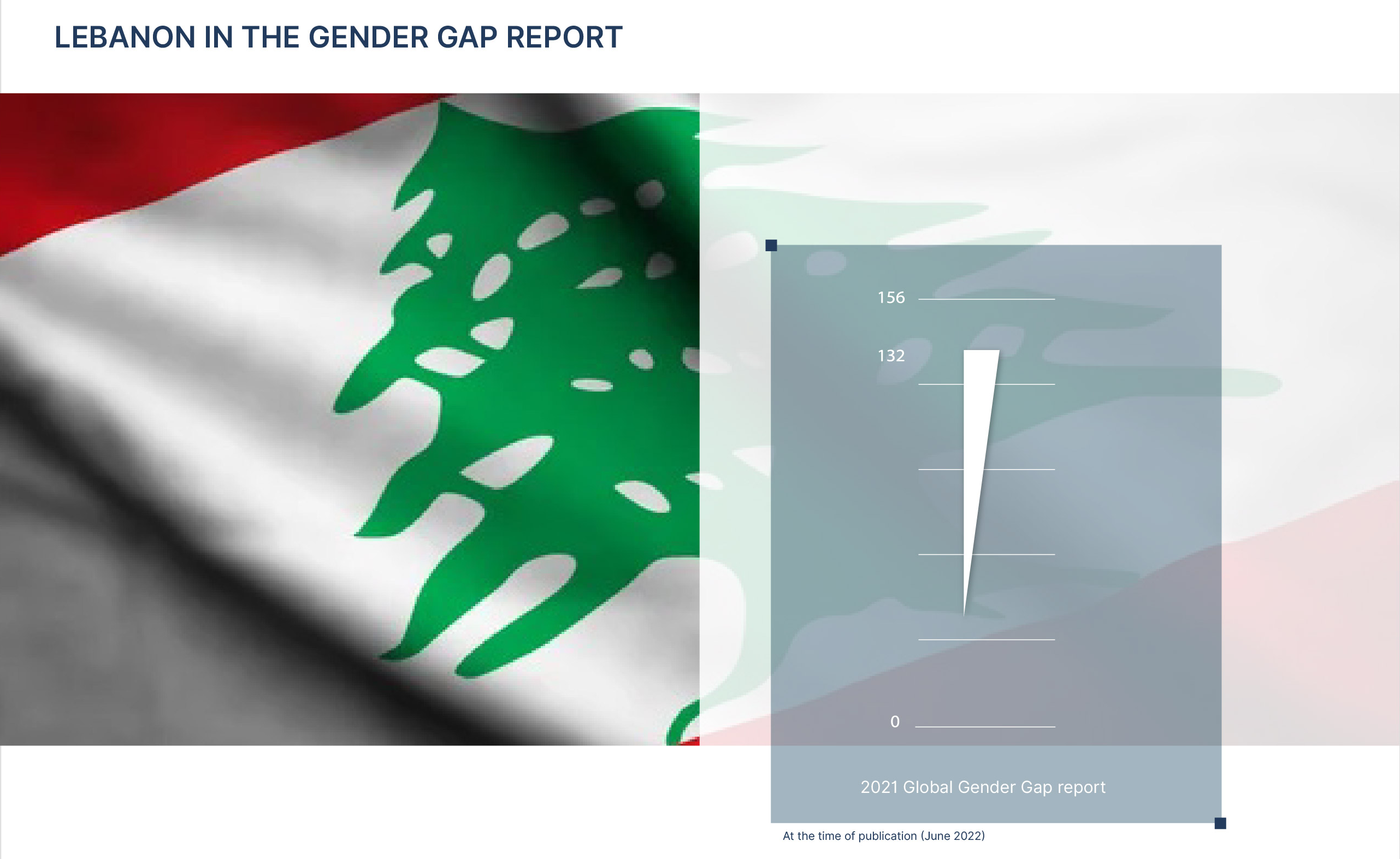
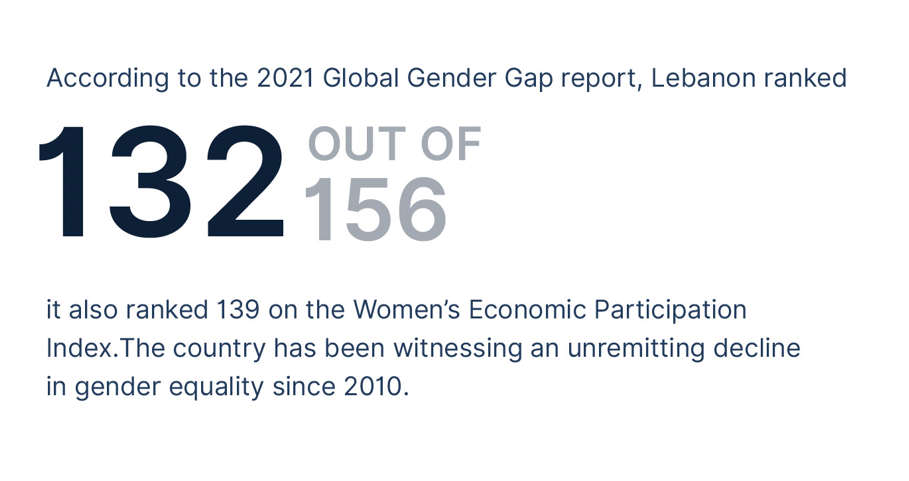

According to UN Women, et aI Rapid Gender Assessment (October 2020), the explosion exacerbated the existing vulnerabilities of women and girls living in the affected areas
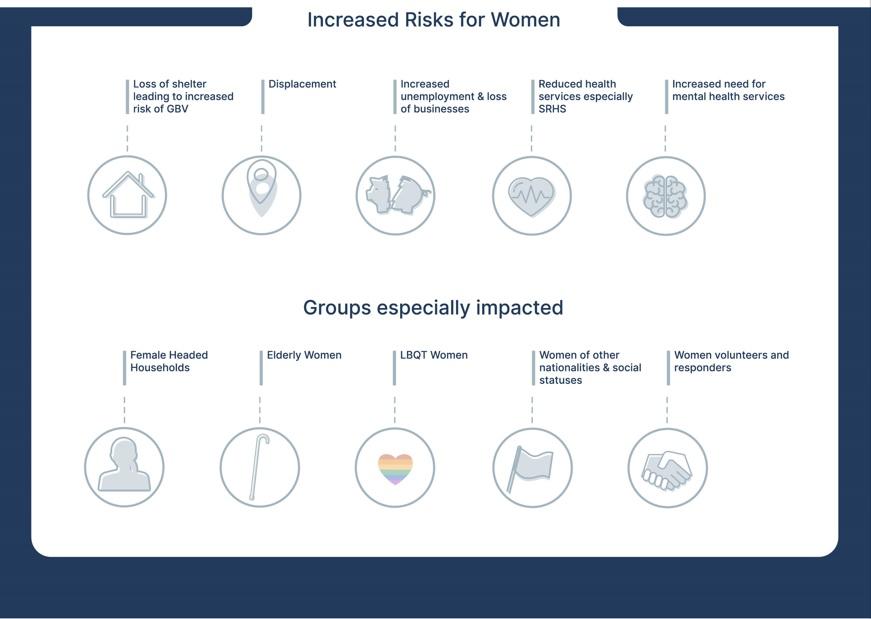
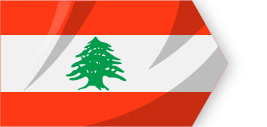
How is gender equality guaranteed in the Lebanese context?
Lebanon ensures gender equality in the constitution and other several action plans, strategies and policies.
The Lebanese Constitution guarantees, in Article 7 of its preamble, the equality of all citizens without any discrimination. Yet, this was not fully reflected in internal laws and provisions that regulate or protect women rights in Lebanon.
The NCLW established The National Action Plan (NAP) in collaboration and coordination with ministries and civil society stakeholders that were represented in a Steering Committee. The NAP was endorsed by the Lebanese government in 2019 and it unfolded strategies and frameworks that are aligned with the four pillars of the UNSCR 1325.
The NAP on UNSCR 1325 aims at including and mobilizing the various sectors of the state to take action towards:
- Increasing the participation and the representation of women at all national governance levels including in security and defense sectors, in conflicts prevention, mediation and resolution.
- Ensuring women’s opportunity and capacity in assuming their role in conflicts’ prevention and tension reduction.
- Providing protection to all women and all children, girls and boys from all forms of violence and discrimination and abuse.
- Providing assistance to all women and girls in response efforts and plans in times of natural disasters and conflicts.
- Eliminating all discriminatory laws against women in addition to the adoption and implementation of laws and policies that empower women, protect them from violence and exploitation, and acknowledge their rights and equality in society.
The plan also matches and supports already established policies that aim at enhancing gender equality, stopping conflicts and protecting women and girls from all forms of violence and discrimination. Among the strategies that already exist and are in line with the National Action plan
The National Strategy for Women adopted the National Commission for Lebanese Women and was endorsed by the Council of Ministers in 2012. The strategy covers wide and various aspects of the life of women and girls especially regarding the political, economic, educational, mental and physical health and wellbeing in times of peace, wars/conflicts or natural disasters.
National Strategy for Gender Equality was adopted by the Office of the Minister of State for Women’s Affairs (the ministry that was formed back in 2016). The areas of action of this strategy matched Lebanon’s global commitment to the Sustainable Development Goals (Agenda 2030).
NAPHR was established in 2016 in the context of Women, Peace and Security (WPS) policy framework, and recommends the government's efforts to respond to women’s needs post-war and to implement UNSCR 1325. In addition to that the NAPHR calls on the state to lift all reservations to CEDAW, adopt a quota to guarantee women’s representation and participation at the decision-making levels.
Since the day of the explosion, and especially in light of the findings of the assessments conducted on the ground, many voices were raised to demand a more gender responsive recovery response that can ensure a better representation of women in the shaping and implementation of these efforts, and can meet the specific needs of women, including of minority women.
LEBANON’S FEMINIST CIVIL SOCIETY PLATFORM
The Feminist Charter of Demands was released on August 27, 2020 by Lebanon’s Feminist Civil Society Platform. It called for an impartial investigation into Beirut's Port Explosion and for a more gender responsive approach across all recovery efforts. The demands were:
• Conducting a gender assessment of needs and priorities. This has now been conducted by UN Women (October 2020) and has identified the main needs of women and girls in the affected area.
• Ensuring women’s representation, leadership, and inclusion. This is of utmost importance because it is only through this representation and inclusion in the planning of recovery efforts and decision making that women’s voices can be heard and their specific needs put on the table.
• Providing food security, shelter and sustainable livelihoods by ensuring equal access to funds and services.
• Preventing and responding to violence against women and girls especially following the numerous reports of an increase in GBV in the last couple of years.
• Ensuring access to health services and sexual and reproductive health rights which may not have been considered a priority as hospitals and healthcare institutions were grappling with the toll of the economic crisis and that of the explosion.
The Feminist Platform also contributed to the development of an eighteen months response plan called Lebanon Reform, Recovery and Reconstruction Framework (3RF).
LEBANON REFORM, RECOVERY & RECONSTRUCTION FRAMEWORK (3RF)
The 3RF was launched in December 2020 by the United Nations, the European Union and the World Bank for a longer term people-centered recovery, reform and reconstruction goals. It estimated that $426 million are needed for the implementation of a number of recovery initiatives in the first year.
The 3RF is based on four focal points:
• Improving governance and accountability
• Jobs and economic opportunities
• Social protection, social inclusion, and culture
• Improving services and infrastructure
The 3RF framework touches upon gender equality and the empowerment of women. It also addresses the existing gender inequities and prioritizes meeting the specific needs of women and girls.
Lebanon ratified many international treaties that enshrine gender equality.
ICCPR In 1974, Lebanon ratified the International Covenant on Civil and Political rights (ICCPR) which stresses on equal rights for all “without distinction of any kind, such as race, color, sex, language, religion, political or other opinion, national or social origin, property, birth or other status” and it guarantees equal civil and political rights for both men and women.
CEDAW Lebanon ratified The Convention on the Elimination of All Forms of Discrimination against Women (CEDAW) in 1997 (with reservations).
SDGs In 2015, Lebanon endorsed the 2030 Agenda for Sustainable Development and the sustainable development goals (SDGs) to address worldwide crises such as poverty, inequality and climate crisis. Gender equality and women empowerment is one of the 17 SDGs; it focuses on equal rights, equal opportunities and equal pay, on the elimination of all root causes of discrimination against women, on protection from domestic violence, sexual violence and GBV. It also emphasizes equal inheritance rights, larger political participation and equal distribution of economic resources.
Lebanon has placed reservations on some treaties and continues to fall short of fulfilling many of its commitments, these conventions, having been adopted and ratified, may be resorted to as a reference for human rights and gender inclusion standards including when planning and implementing recovery efforts following the Beirut Explosion.
In order to benefit from best practice guidelines and to mitigate any common missteps that hinder the attainment of gender responsive and women inclusive programming, we will now look at crises that have taken place in comparable contexts. There have been various man-made and natural crises all over the world that required significant recovery efforts and major funding, as was the case with the Beirut Port Explosion on August 4, 2020. Many such responses also put forth recommendations to ensure gender inclusive efforts. But, to our knowledge, there have been very few assessments of the impact of these calls to action or any measured improvement in the way gender specific needs were tackled in these contexts when compared to previous responses.
